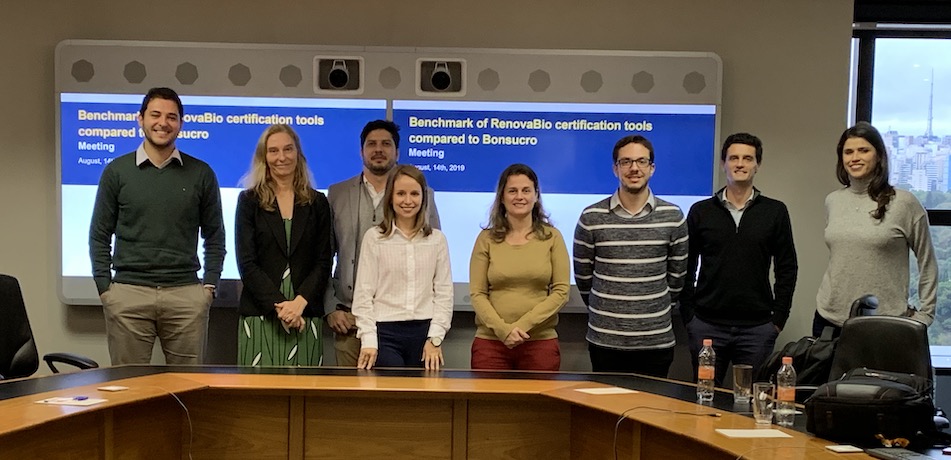20th August 2019
 The preliminary results of a comparative study between Bonsucro and RenovaBio’s certification systems were presented to a selected audience at a meeting in São Paulo, Brazil on 14 August.
The preliminary results of a comparative study between Bonsucro and RenovaBio’s certification systems were presented to a selected audience at a meeting in São Paulo, Brazil on 14 August.
Representatives from the Brazilian Energy Agency (ANP), Bonsucro members such as Raízen, Copersucar, Tereos, Adecoagro, among others, and Bonsucro’s Licensed Certification Bodies, were present.
Development on the study began in June with the support of Agroícone, one of the most respected consultancies in the agricultural sector. The study will potentially form the basis for seeking formal recognition by the Brazilian government of Bonsucro as a certification system that meets the requirements of the RenovaBio scheme.
The study showed there is significant synergies between Bonsucro and RenovaBio in terms of certification requirements and that there are still opportunities for further development in terms of aligning both schemes, for example, when it comes to performance measurement tools. As a preliminary conclusion, 58% of alignment was found between Bonsucro’s and RenovaBio’s calculators.
The comparative study is part of an impact project working on RenovaBio policy in Brazil that is being carried out in partnership with the Earth Innovation Institute (EII). The project aims to look at incorporating RenovaBio’s guidelines and criteria into Bonsucro’s Standards via the current Production Standard revision, which began in March 2019, and will set out definitions on roles and responsibilities of Bonsucro and EII. The project intends to provide national and international understanding of how RenovaBio works and how these learnings might be taken to other regions (particularly those exporting ethanol under EU RED scheme) with low-carbon emission public/private mechanisms.
RenovaBio is the Brazilian National Biofuels Policy, approved by Brazilian’s Congress in December 2017, intended to reduce the emissions intensity of the country in line with Brazilian’s commitments under COP 21/Paris Agreement. The policy sets specific targets of decreasing carbon footprint of the national fuel mix as well as ensuring a long-term demand for low carbon fuels in the country. The new regulatory framework is being formulated throughout 2019, and carbon credits trading should come into effect in early 2020. RenovaBio adopts a mechanism for qualifying biofuels according to their respective levels of energy-environmental efficiency through an individual and voluntary certification process, which is conducted by inspection companies nominated by the Brazilian Energy Agency (ANP).
Download the materials from the meeting:





